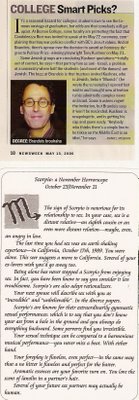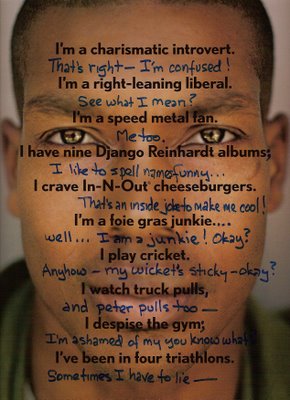J. E. HILL ASKS AND ANSWERS IN SKEPTICAL REVIEW ARTICLE
"Are there great differences separating the Genesis creation and other creation myths, and is the Genesis account really the closest to the Big Bang?" —JEHill
In this article in The Skeptical Review, John Hill goes over lots of material. After reading this material, you should have no doubt that 1) there is very little difference between many creation myths from that era and place (specially between the myths that the Bible borrowed from and Bible mythology itself) and 2) the Genesis account in the Bible bears almost no comparison to what we know about the undeniable evidence for the Big Bang.
Speaking of Bible mythology, may I also refer you to 101 Myths of the Bible: How Ancient Scribes Invented Biblical History by Gary Greenberg.
Then, if you find Greenberg's book interesting, as any open-minded curious person will find it, you may also be interested in one or more of the following books which you will find on the Amazon website on the same page as 101 Myths under "Customers who bought this item also bought"
Who Wrote the Bible? by Richard E. Friedman
The Book Your Church Doesn't Want You to Read by Tim C. Leedom
Who Wrote the New Testament? : The Making of the Christian Myth by Burton L. Mack
The Dark Side of Christian History by Helen Ellerbe
The Christ Conspiracy: The Greatest Story Ever Sold by Acharya S
And if you take all the evidence in this post seriously into account, you will have little trouble understanding why a Bush who takes the Bible literally could also be easily misled by Cheney and Perle and the mythology of Iraq they handed Bush. If Bush were a real president, rather than the worst presidential pretender in the history of American presidents, Bush would be a "burning Bush" indeed, thinking how his advisers misled him into his horrible blunder. He's either "burning" or in on and part of the Big Lie itself. Finally consider how JFK reacted after the Bay of Pigs, how he got very serious about his mistake and how he handled the error in a much more forceful manner.
Wednesday, May 31, 2006
Monday, May 29, 2006
 NIETZSCHE’S ANTI-CHRISTIAN PHILOSOPHY
NIETZSCHE’S ANTI-CHRISTIAN PHILOSOPHYReligion’s victims eventually come to hate life itself—not just themselves. —Nietzsche
A couple of quarters ago, I took a course in Continental Philosophy—existentialism, that is, as distinct from American pragmatism. I am no philosopher, but I am and have been an atheist for quite some time. I don’t know how anyone can still believe there’s some great power in the heavens who watches over them unless they are already defeated and broken in spirit and can no longer rely on themselves. In short—if life isn’t working out for you, then go ahead and imagine there’s someplace else (an afterlife) where poor little you will come out on top.
In Continental Philosophy: a critical approach (pp. 121-123), William Schroeder summarizes some of Nietszsche’s reasons for being the atheist he is. They’re good reasons, one and all, and I imagine that few atheists arrive at their own conclusions with having thought or read of these ideas in their philosophical development from superstitious pie-in-the-sky thinker to solid pragmatist and skeptic:
“Nietzsche contends that most religions—especially Christianity—displace the inherent value of acting nobly, encouraging people to act ethically only to achieve some reward (entrance into heaven) and to resist evil only to avoid horrible punishment (hell). Nietzsche believes that such incentives undermine ethical action because it should be indifferent to rewards and punishments. Moreover. the otherworldly focus of most religions encourages adherents to ignore this world—to abandon their responsibilities and ignore their failures here—because they can be compensated or forgiven in the next world. Equally suspect is the belief that a last-minute conversion can atone for a lifetime of heartlessness and lassitude, as if deathbed conversions can eliminate responsibility for such failings. For these reasons, Nietzsche believes most religions mock ethical seriousness because they undermine its presuppositions: that virtue is its own reward, that this world is where ethical action is needed, and that every action matters.
“In addition, many religions idealize asceticism—opposing natural human impulses, e.g., sex, pride, self-assertion. and joy in achievement. Nietzsche thinks these natural impulses are incipient sources of excellence. Religion's primary tactic is to extirpate or annihilate them, producing people who are either divided within themselves (insofar as they maintain some identification with their impulses) or hate themselves (because they cannot overcome them). Self-contemptuous people reject life and act spitefully. When others reciprocate, anger, hatefulness, and resentment escalate, creating poisonous social relations. Religion’s victims eventually come to hate life itself—not just themselves. Nietzsche also challenges Christianity's embrace of "slavish" values—values that sustain the weak, the failures, the inept, and the memocre. Nietzsche holds that the concept of "good" within a slavish system of evaluation is derivativedefined solely in opposition to whatever it calls "evil"—and that "evil" maligns noble traits that enhance human flourishing and exceptional achievement. Slavish value systems sanctify humility, passivity, pity, lassitude, dependence. Nietzsche believes that the best relationship to natural passions is sublimation—redirecting and guiding them toward higher goals. Nietzsche celebrates these impulses because they provide the energy necessary to achieve greatness.
“Beyond this, Nietzsche shows that Christianity's emotional ambiance is dominated by sin, guilt, suffering, penance, atonement, and despair. Thus. its psychic landscape is desolate, without vitality, passion, light-footedness, or playfulness—characteristics that Nietzsche believes are essential to higher achievements, This emotional ambiance devastates the faithful. shattering their self-confidence and inspiration, Moreover, historically, religion is responsible for many ethnic wars and hatreds, and soldiers (and terrorists) infused with holy righteousness are more efficient killers. Of course, priests might argue that religion offers "metaphysical comforts" to the masses, making their modest lives meaningful and providing them with hope. But Nietzsche often thinks that illusory hopes are problematic and that religious meaning depends on indefensible assumptions. Without metaphysical comforts, people would be forced to push themselves to achieve meaningful lives. Nietzsche concludes that the psychological and historical consequences of theism have reduced humanity's capacities for excellence. The demise of such a corrupting institution should be greeted with joy.
“Nietzsche also challenges Christianity's embrace of "slavish" values—values that sustain the weak, the failures, the inept, and the mediocre. Nietzsche holds that the concept of "good" within a slavish system of evaluation is derivative, defined solely in opposition to whatever it calls "evil"—and that "evil" maligns noble traits that enhance human flourishing and exceptional achievement. Slavish value systems sanctify humility, passivity, pity, lassitude, dependence, non-responsiveness, and procrastination. These “values” lead humanity down a path opposite from the one Nietzsche embraces. They sustain those who avoid the challenge of greatness, who shun danger, and who mindlessly conform. Slavish values encourage dependence on higher powers, keeping people in a helpless condition.”
Friday, May 26, 2006
IRONY IRONY IRONY
This winter's rise in heating oil prices caused one or two oil exporting countries to come to the aid of America's poorest citizens (since Bush didn't do it). It came from Citgo Petroleum, controlled by the Venezuelan government and its president, fierce Bush administration adversary Hugo Chavez, who promised $10 million in discounts to low-income northeastern heating oil customers. He and his citizens must be getting a few laughs at America's expense. (from US News, Dec 12, 2005)
STERN MAKES A SIRIUS CAREER MOVE
As some of you may know, Howard Stern has gone over to pay radio, but this snippet is about how stupid censorship gets:
"His [Howard Stern] diatribes against the thought police on both the right and the left come spilling out like soliloquies and are often backed up with evidence—like the time he wanted to play a tape of Oprah talking about sexual acts, only to be told that not only could he not say the same words Oprah did, he couldn't even play her on tape saying them. 'Talk about censorship,' Stern says. 'I will go to my grave thinking this was all politically motivated, and I'm not a conspiracy theorist.' " (from Newsweek, Dec. 12, 2005)
It is a conspiracy, Howard, and not just against you, but against all of us who value freedom.
BUSH LINES THEM UP AGAINST US WITHOUT EVEN TRYING
"China has used soft power only in the sense that it has exercised its power softly. It does this consciously to show that it is not a bully, unlike guess who. And it works. America remains unpopular among the peoples of Asia, even in countries like Japan, where the government is friendly with Washington. In most Asian elections in the last two years, being pro American was a political liability." (from Newsweek, Dec. 12, 2005)
And, if you're paying any attention, Bush is getting a lot of anti-American presidents elected in South America too. You got Chavez in Venezuela, and the current Colombian election may swing to the left because Bush has made enemies there too.
FLOGGING THE DEAD HORSE
I know that I keep bringing up this one obvious point, but what I'm trying to show is that it does come up more often than most would realize. The Bible belt South is a poor dumb place to live. The point really being, that if you're not well educated and live in the South, you can be conned by political conservatives into undermining your own well-being. In an article about the after effects of Katrina, Newsweek reports, "Even before the storm, the Southeastern states (nickname: 'the stroke belt') were cursed with a toxic mix of poor health and poverty. In a survey taken of evacuees in Houston after Katrina, half said they had no health insurance; 41 percent reported suffering from chronic conditions, like heart disease, hypertension, asthma, diabetes and cancer. 'We're the poster children for poor health in terms of chronic disease,' says Elizabeth Fontham, dean of the School of Public Health at Louisiana State University Health Sciences Center. 'Hurricane Katrina was no cure for those problems and they're likely to be exacerbated.' They're also likely to linger—for months, if not years, to come." (Dec. 12, 2005, p.66)
This winter's rise in heating oil prices caused one or two oil exporting countries to come to the aid of America's poorest citizens (since Bush didn't do it). It came from Citgo Petroleum, controlled by the Venezuelan government and its president, fierce Bush administration adversary Hugo Chavez, who promised $10 million in discounts to low-income northeastern heating oil customers. He and his citizens must be getting a few laughs at America's expense. (from US News, Dec 12, 2005)
STERN MAKES A SIRIUS CAREER MOVE
As some of you may know, Howard Stern has gone over to pay radio, but this snippet is about how stupid censorship gets:
"His [Howard Stern] diatribes against the thought police on both the right and the left come spilling out like soliloquies and are often backed up with evidence—like the time he wanted to play a tape of Oprah talking about sexual acts, only to be told that not only could he not say the same words Oprah did, he couldn't even play her on tape saying them. 'Talk about censorship,' Stern says. 'I will go to my grave thinking this was all politically motivated, and I'm not a conspiracy theorist.' " (from Newsweek, Dec. 12, 2005)
It is a conspiracy, Howard, and not just against you, but against all of us who value freedom.
BUSH LINES THEM UP AGAINST US WITHOUT EVEN TRYING
"China has used soft power only in the sense that it has exercised its power softly. It does this consciously to show that it is not a bully, unlike guess who. And it works. America remains unpopular among the peoples of Asia, even in countries like Japan, where the government is friendly with Washington. In most Asian elections in the last two years, being pro American was a political liability." (from Newsweek, Dec. 12, 2005)
And, if you're paying any attention, Bush is getting a lot of anti-American presidents elected in South America too. You got Chavez in Venezuela, and the current Colombian election may swing to the left because Bush has made enemies there too.
FLOGGING THE DEAD HORSE
I know that I keep bringing up this one obvious point, but what I'm trying to show is that it does come up more often than most would realize. The Bible belt South is a poor dumb place to live. The point really being, that if you're not well educated and live in the South, you can be conned by political conservatives into undermining your own well-being. In an article about the after effects of Katrina, Newsweek reports, "Even before the storm, the Southeastern states (nickname: 'the stroke belt') were cursed with a toxic mix of poor health and poverty. In a survey taken of evacuees in Houston after Katrina, half said they had no health insurance; 41 percent reported suffering from chronic conditions, like heart disease, hypertension, asthma, diabetes and cancer. 'We're the poster children for poor health in terms of chronic disease,' says Elizabeth Fontham, dean of the School of Public Health at Louisiana State University Health Sciences Center. 'Hurricane Katrina was no cure for those problems and they're likely to be exacerbated.' They're also likely to linger—for months, if not years, to come." (Dec. 12, 2005, p.66)
Wednesday, May 24, 2006
BLOGSVILLE
Today I was going through more lists of interests to see what people who like what I like put into their blogs. Today I checked out "parallel universes" and "reality". I was struck again by how many people fire up a blog for one entry or a handful then disappear from sight. Most claim in their initial post that this will be their deepest soul coming to you on a hot platter of apples. Then, I think, most of them very quickly realize that putting down your soul for others to read on a daily basis is kind of like writing a novel, and writing things down is no more fun than it was when we all were highschool twits with BIG THOUGHTS to share. Writing on a steady basis is difficult and (can be) lonely work. If you are not entertained yourself by the process and what you are thinking and doing, then, writing down your soul thoughts for others will damn soon wear thin. For some it takes only one entry. For others a handful before they cease and desist. May they all go on to happy and fulfilling lives in suburbia with spouse and required number of children, lawns to mow, neighbor's spouses to ogle and lust after and a divorce after one to ten years. At that time, they may have more to say of interest.
Today I was going through more lists of interests to see what people who like what I like put into their blogs. Today I checked out "parallel universes" and "reality". I was struck again by how many people fire up a blog for one entry or a handful then disappear from sight. Most claim in their initial post that this will be their deepest soul coming to you on a hot platter of apples. Then, I think, most of them very quickly realize that putting down your soul for others to read on a daily basis is kind of like writing a novel, and writing things down is no more fun than it was when we all were highschool twits with BIG THOUGHTS to share. Writing on a steady basis is difficult and (can be) lonely work. If you are not entertained yourself by the process and what you are thinking and doing, then, writing down your soul thoughts for others will damn soon wear thin. For some it takes only one entry. For others a handful before they cease and desist. May they all go on to happy and fulfilling lives in suburbia with spouse and required number of children, lawns to mow, neighbor's spouses to ogle and lust after and a divorce after one to ten years. At that time, they may have more to say of interest.
MIDDLE EAST IS NOT SIMPLE, says Munich screenwriter
 Two photos scanned as one today with text:
Two photos scanned as one today with text:The first is from Newsweek and contains a quote from the Jewish author, Tony Kushner, about the Middle East. Just as I think no issue is simple, I must agree with Mr. Kushner on this one. Simple-minded answers on most issues lead to rigid dogma, murder and mayhem. He says, "Anybody who thinks there's a simple line to be taken on the Middle East is an idiot."
ASTROLOGY FOR IDIOTS
Several years ago and for about six years, I edited, wrote for and published a small microzine called George & Mertie's Place. I came across some really comical fortunes predicated on astrological signs. At first I scanned the few I found into the microzine, then borrowing the concept, I actually read a few small books on astrology, enough to begin writing my own comic fortunes. The second is cut and scanned from George & Mertie's Place. Enjoy.
Monday, May 22, 2006
 HELEN GREINER, COFOUNDER, IROBOT
HELEN GREINER, COFOUNDER, IROBOTLeafing through my US NEWS AND WORLD REPORT
(Dec. 19, 2005), I come across this beautiful, clear-eyed young woman's face on page 34. A beautiful face, but on a closer look, her face is more than emptily beautiful, not just an empty fill-in-your-own-fantasy model's face; it's radiant with intelligence. Reading more, I discover this woman is truly intelligent, savvy, an inventor. Lately, reading so much from Dawkins's THE ANCESTOR'S TALE, I've been steeped in DNA, genes, evolution, so I look for info of this woman's DNA and I find it a few pages on:
"Born in London, Greiner grew up on New York's Long Island with her mother, a math and science teacher, and her father, a chemistry major turned businessman.
Mathematically and mechanically inclined, she played daily chess with her father starting at age 5 and was programming a Radio Shack TRS-80 computer when she was a preteen. Before long, she was doing her own repairs to her Volvo station wagon with parts she bought at the junkyard. (For "fun," she recently wired her own house for cable and installed a wireless network.)"
Lotsa good genes in there. I imagine she's just one more of those "elites" the Bush machine loves to put down. Anyone with the smarts of a snail is an elite to those fools so this woman must seem an Olympian goddess to them. In fact, if conservatives like Bush would just realize that most of what they have is the results of good genes, at least adequate genes, they might adopt gratitude as part of their natures rather than their continual blaming of the poor for their defects while tangentally praises their own right stuff.
SPEAKING OF ROBOTS AND IQ
So this man goes into a bar and orders a drink. The bar has a robot bartender. The robot serves him a perfectly prepared cocktail, and then asks him, "What's your IQ?"
The man replies "150" and the robot proceeds to make conversation about global warming factors, quantum physics and spirituality, bio mimicry, environmental interconnectedness, string theory, nanotechnology, and sexual proclivities.
The customer is very impressed and thinks, "This is really cool." He decides to test the robot. He walks out of the bar, turns around, and comes back in for another drink. Again, the robot serves him the perfectly prepared drink and asks him, "What's your IQ?"
The man responds, "About a 100."
Immediately the robot starts talking, but this time, about football, NASCAR, baseball, supermodels, favorite fast foods, and guns.
Impressed now, the man leaves the bar and decides to give the robot one more test. He heads out and returns, the robot serves him and asks, "What's your IQ?"
The man replies, "Er ahh, 50, I think."
And the robot says... very slowly, "Sooooooo. . . ya gonna vote for Bush again?"
[I got this off the internet, passed on to me by a friend.]
Friday, May 19, 2006
BACK TO SCIENCE: ANOREXIA, ANOTHER GENETIC DEFECT?
The more I study, the more I know we are robots. We think we make our own decisions but our bodies more often than not evidently throw those little chemical switches we call decisions. Imagine choosing day after day not to eat, going against all desire to live.
A recent article in NEWSWEEK (Dec. 5, 2005) yielded the following passages:
[OPEN QUOTE]
Not many years ago, the conventional wisdom held that adolescent girls "got" anorexia from the culture they lived in. Intense young women, mostly from white, wealthy families, were overwhelmed by pressure to be perfect from their suffocating parents, their demanding schools, their exacting coaches. And so they chose extreme dieting as a way to control their lives, to act out their frustration at never being perfect enough. In the past decade, though, psychiatrists~have begun to see surprising diversity among their anorexic patients. Not only are anorexia's victims younger, they're also more likely to be black, Hispanic or Asian, more likely to be boys, more likely to be middle-aged. All of which caused doctors to question their core assumption: if anorexia isn't a disease of type-A girls from privileged backgrounds, then what is it?Although no one can yet say for certain, new science is offering tantalizing clues. Doctors now compare anorexia to alcoholism and depression, potentially fatal diseases that may be set off by environmental factors such as stress or trauma, but have their roots in a complex combination of genes and brain chemistry. In other words, many kids are affected by pressure cooker school environments and a culture of thinness promoted by magazines and music videos, but most of them don't secretly scrape their dinner into the garbage. The environment "pulls the trigger," says Cynthia Bulik, director of the eating-disorder program at the University of North Carolina at Chapel Hill. But it's a child's latent vulnerabilities that "load the gun."
Parents do play a role, but most often it's a genetic one. In the last 10 years, studies of anorexics have shown that the disease often runs in families.
[CLOSE QUOTE]
According to the same article, “anorexia is a killer—it has the highest mortality rate of any mental illness, including depression.” Finally, here’s the clincher, the idea that the body is making decisions about its chemistry without the mind knowing anything about it:[OPEN QUOTE]
The amount of serotonin in anorexics is abnormally high. Although normal levels of serotonin are believed to be associated with feelings of well-being, these pumped-up levels of hormones may be linked to feelings of anxiety and obsessional thinking, classic traits of anorexia. Kaye [professor of psychiatry at U. of Pittsburgh] hypothesizes that anorexics use starvation as a mode of self-medication. How? Starvation prevents tryptophane, an essential amino acid that produces serotonin, from getting into the brain. By eating less, anorexics reduce the serotonin activity in their brains, says, Kaye , ‘creating a sense of calm’ even as they are about to die of malnutrition.’ [CLOSE QUOTE]
 Note in the paragraph above a strange phenomenon. The doctor and the NEWSWEEK writer, because of the language we all use, are forced to discuss this possible anorexic instinct as if it were an activity driven by choice. Whereas the truth is that the body is making the anorexic starve himself in order to deal with the chemical imbalance humans have given the name “anxiety” to. I’m sure anorexics are being driven to their behavior without any idea that the “body’s decisions” are being based on their brain chemistry. That is why it is so hard to get people to entertain the idea that they are robots. Our language forces us to talk of “decisions” rather than in terms of our brain chemistry making decisions for us. On occasion I have tried to use terminology in ways that reflect this robotic chemical state that humans live within, and people look at me like I’m nuts or come to think I have no “moral” structure.
Note in the paragraph above a strange phenomenon. The doctor and the NEWSWEEK writer, because of the language we all use, are forced to discuss this possible anorexic instinct as if it were an activity driven by choice. Whereas the truth is that the body is making the anorexic starve himself in order to deal with the chemical imbalance humans have given the name “anxiety” to. I’m sure anorexics are being driven to their behavior without any idea that the “body’s decisions” are being based on their brain chemistry. That is why it is so hard to get people to entertain the idea that they are robots. Our language forces us to talk of “decisions” rather than in terms of our brain chemistry making decisions for us. On occasion I have tried to use terminology in ways that reflect this robotic chemical state that humans live within, and people look at me like I’m nuts or come to think I have no “moral” structure.
These Lexus drivers are sure confused people as our short four person series no doubt shows.
 Note in the paragraph above a strange phenomenon. The doctor and the NEWSWEEK writer, because of the language we all use, are forced to discuss this possible anorexic instinct as if it were an activity driven by choice. Whereas the truth is that the body is making the anorexic starve himself in order to deal with the chemical imbalance humans have given the name “anxiety” to. I’m sure anorexics are being driven to their behavior without any idea that the “body’s decisions” are being based on their brain chemistry. That is why it is so hard to get people to entertain the idea that they are robots. Our language forces us to talk of “decisions” rather than in terms of our brain chemistry making decisions for us. On occasion I have tried to use terminology in ways that reflect this robotic chemical state that humans live within, and people look at me like I’m nuts or come to think I have no “moral” structure.
Note in the paragraph above a strange phenomenon. The doctor and the NEWSWEEK writer, because of the language we all use, are forced to discuss this possible anorexic instinct as if it were an activity driven by choice. Whereas the truth is that the body is making the anorexic starve himself in order to deal with the chemical imbalance humans have given the name “anxiety” to. I’m sure anorexics are being driven to their behavior without any idea that the “body’s decisions” are being based on their brain chemistry. That is why it is so hard to get people to entertain the idea that they are robots. Our language forces us to talk of “decisions” rather than in terms of our brain chemistry making decisions for us. On occasion I have tried to use terminology in ways that reflect this robotic chemical state that humans live within, and people look at me like I’m nuts or come to think I have no “moral” structure.These Lexus drivers are sure confused people as our short four person series no doubt shows.
Wednesday, May 17, 2006
IT'S EVERYWHERE IN THE CHURCH 
For 30 years I've been listening to the stories of friends of mine, mostly female but some male too, about the various kinds of sexual abuse that is high, wide and handsome in the most fundamental of churches. Not so much in the moderate and liberal churches, though it happens there too. So here's just a small snippet of the pages in the Freedom From Religion Foundation's paper, listing this past months abusive happenings in the religious world. If I had a child, I'd keep him/her far away from fundamental churches and their leadership.
Click on picture and enlarge it so you can read it.

For 30 years I've been listening to the stories of friends of mine, mostly female but some male too, about the various kinds of sexual abuse that is high, wide and handsome in the most fundamental of churches. Not so much in the moderate and liberal churches, though it happens there too. So here's just a small snippet of the pages in the Freedom From Religion Foundation's paper, listing this past months abusive happenings in the religious world. If I had a child, I'd keep him/her far away from fundamental churches and their leadership.
Click on picture and enlarge it so you can read it.
Tuesday, May 16, 2006
MONUMENT TO A LOST CIVILIZATION
In our 125th Century (Earth years) Martian culture, little is known of the Earth civilization
of the 21st Century except for the Great Monument of Spokane,
one of the Wonders of the World, uncovered by
the hard labor of archaeologist photog and Cosmotic traveler He Who Towers
who, after searching for years, at last approached the Monument.
Following is a series of photographs that He Who's assistant shot
as they approached the great Monument. Martian linguists are working
diligently at this time to find an American "Rosetta stone" by which
to translate the language at the top of the great Monument.
In our 125th Century (Earth years) Martian culture, little is known of the Earth civilization
of the 21st Century except for the Great Monument of Spokane,
one of the Wonders of the World, uncovered by
the hard labor of archaeologist photog and Cosmotic traveler He Who Towers
who, after searching for years, at last approached the Monument.
Following is a series of photographs that He Who's assistant shot
as they approached the great Monument. Martian linguists are working
diligently at this time to find an American "Rosetta stone" by which
to translate the language at the top of the great Monument.






From the series "Looking Up In Spokane".
Monday, May 15, 2006
 “I AM NOT RELIGIOUS”
“I AM NOT RELIGIOUS”"I am not religious. Some religions I admire, such as Buddhism. But certainly not Christianity. It has caused bloodshed throughout history. The atrocities of the Crusades is one example.
"The Salem witchhunts is another. As late as 1800 in most European countries, a person could be hanged for blasphemy. Christianity in the past has been as murderous as the Moslem are now, who believe in killing all non-Moslems. Our treatment of the Indians, especially in the West, during the 1800s is a sad story. Since the Indians weren't Christians, killing them was on the same level as killing coyotes. Whites tooks their land without remorse, for after all, they were not Christians. Any religion that thinks it is the right one and all others are wrong is plain stupidity, for none of the beliefs of any religion can be proved. Mark Twain said "Religion is believing what you know ain't so".
"You can read in history books about many famous people who lived in the B.C. time. The route that Alexander the Great followed to India was recorded and came down through the ages, as well as his exploits. He died in 323 B.C. Homer's Iliand and Odyssey comes down to us today, though he died in 400 B.C.
"The dramas of Aristophenes are still produced today. He died in 385 B.C. Aristotle's life was written and became history. He died in 322 B.C. Plato died in 347 B.C. Julius Caeser in 44 B.C.
"BUT there is NO historical record of Jesus. History books refer to "it is believed" and such evasions. If he did one tenth of what the Bible reports, he would have been written about at the time and recorded. Paul WAS a historical figure, but he began preaching 40 years after Jesus was supposed to have died. People like a father figure, an all-powerful mentor, and they enjoy mystery. Christianity supplied this. The Bible supports slavery, women as second class, and there is not a word about kindness to animals. Christians believe in an after-life.
"But only for humans. An elephant is smarter than a lot of people. If an imbecile goes to heaven, but not a seeing-eye dog, I want nothing to do with that religion. "
—Doris Gerhart of Spokane’s Inland Northwest Freethought Society
MORE ANTI-WORKER BUSHLEAGUE ACTION
After Katrina, Bush waived a 74-year-old law that requires government contractors (like Haliburton) to pay a fair wage with government money. Last week, grassroots pressure forced Bush to back down and reinstate the law, called Davis-Bacon, guaranteeing that Gulf Coast workers will be fairly paid as they labor to rebuild their community.
—From a MoveOn.Org release.
PS: The art work is a collage by the editor of this blog.
Saturday, May 13, 2006
LOOKING UP IN SPOKANE
Downtown yesterday, looking up and snapping pictures with a digital camera that has been mostly collecting dust for two years. It was a retirement gift from MacKay Manufacturing where I worked the last 16 years of my working life. A fine place to work. A good crew and good owners and management. Inspired by Philip Roth, I seem to be working back into my creative self. Several poems, three short stories and now some photography within 60 some days. Mainly, I'm giving myself permission not to be perfect. That opens up the floodgates. Before, I always had to be Shakespeare, T. S. Eliot, Renoir or Edward Steichen.








Friday, May 12, 2006

LET'S CARVE UP THE INTERNET,
says Big Guys
Perhaps you've read this. Perhaps not. This February article is the first time I came across the idea. Now I've seen it everywhere from our local rag to Technology Review. And I'm signing petitions on the Internet. Hope you are able to click on the picture and enlarge it for reading. It'll save me from scanning and working text with my ReadIris OCR software. Anyhow, this'll stand for an entire entry unless something else fires up my brain synapses and causes this robot to perform.
TULIA: ANOTHER SOUTHERN STORY OF IGNORANCE AND RACISM or
WHY TEXAN BUSH IS THE BUSHITE HE IS
“Tulia will forever be known as that tiny town in Texas where dozens of innocent black folks were imprisoned on the word of a lying narc. . . .” Later, after many innocent people went to jail and all the trouble was eventually cleared up by a handful of people who realized that a lying lawman, Tom Coleman, who became Texas lawman of the year—only in Texas, folks—was the source of the trouble, Jeff Blackburn, a colorful attorney from Amarillo who was involved in freeing the falsely accused persons, said, “If you play by the rules in Texas, you will lose.”
Check the entire story out in NEWSWEEK, Dec. 19, 2005, p. 44.
That's Texas folks and is why Bush is who he is, why he’s a lawless shoot from the hip wonder who doesn’t play by the rules, by the Constitution, why he could say that the Constitution was just a “damn piece of paper”. Republicans just aren’t real Americans down there in Texas. They’re backward, ignorant, cruel and crafty. And if you get caught up down there in legal problems, don’t expect there to be much help for you if you’re not rich. According to the NEWSWEEK report, many counties in Texas are trying to destroy the public defender system by paying public attorneys next to nothing. We must assume that according to Texas Republicans, people who are suspected of crimes must be guilty without trial, so why help them prove themselves innocent? In Texas all innocent people must really get screwed. Texas is a land where the rich rule the poor and the injustice down there is the injustice Bush and the Republican Party are trying to foist on the entire United States.
Wednesday, May 10, 2006
 THIS SPRING'S FUNNY
THIS SPRING'S FUNNYI haven't been gardening long, but this Spring seems different than the last three. It rained and got warm in very early April. The flowers began to sprout. Then the rain stopped and the weather became cooler. Though the Hostas are coming in strong, most flowers seem to have stopped, frozen, waiting for a little more warmth before they expose themselves further.
A WAY TO GET AROUND RESPONSIBILITY
I'm going to make a generalization that I can't support because it's a phenomenon I come across only once in awhile, and I don't note it down for future reference though it’s revealing and truly interesting.
Note how Limbaugh phrases his addiction in relation to his OxyContin and himself. He says, "It's a powerful addiction this stuff has.”* Thus he subconsciously really doesn’t admit to his addiction. The "stuff" has the addiction. It’s a slip of tongue with meaning. More than once but not more than four times, I’ve heard conservatives make this kind of verbal error, totally unaware of slipping over to blame something outside of themselves for what they‘ve done.
I think the human animal can imagine in others what is in it, and that’s why conservatives are so big about sticking the blame to others who they see as trying to paint themselves as victims, therefore, it’s harder for them to admit to frailties because they’ve got such a long fall off their high horses when they do admit to something. So they try to be big about it and take the fall, but sometimes their self-righteousness overwhelms their word choice.
*Newsweek, May 8, 2006
REPUBLICAN JUGGERNAUT CONTINUES TO ROLL. . . OVER GOODNESS
If it isn’t the mentally ill, it’s the poor, and if it’s not the poor, it’s the elderly, and if it’s not the elderly, it’s the union workers, and if it’s not the union worker, it’s the handicapped.... One group after another, the Republican juggernaut continues to roll over our little Polands and to destroy one piece of the safety net after another. I heard today that America is climbing near to the top of the industrialized world in child mortality rates. And Doris sent along another piece of information below:
“This is mind boggling. People who lived in Libby, Montana during the years they were mining asbestos (vermiculite) have died of lung cancer (asbestiosis) in droves. I have a friend, he was a co-worker when I worked for the state. He's a PhD psychologist. I saw him at an office supply store last summer, and we chatted a few minutes. He said his brother recently died of asbestiosis, and he himself has beginning signs of it. He has to accept that his life will be much shorter. Their father owned a sawmill at Libby, and they grew up there until they left for college. Today, I read that Bush and the Republican congress passed a bill releasing companies that pollute the air or water from all claims and responsibilities. They tied it in as a rider in the budget bill, along with another bill that cut the funds for housing subsidies to disabled people. But what can we do. Enough religious ignoramuses voted for him again in 2004.”
from Doris Gerhart
PS: By the way, the picture at top is the facade of one of my favorite writing spots at 2nd and Madison in Spokane, the Empyrean.
Monday, May 08, 2006
 BACK TO SCIENCE AND STARLINGS WHO SPEAK
BACK TO SCIENCE AND STARLINGS WHO SPEAKWhat's interesting to me is that scientists are able to come up with ingenious experiments to test their hypotheses. That's so important—how a test is designed and made as foolproof from error as possible. An experiment's validity is a key point in so much scientific debate, isn't it? In fact, that may be one of the key differences between those whose brains are superstitiously religious and those who think more rationally. I'm still waiting for religionists to come up with a test that will reveal the face of god.
[OPEN QUOTE]
Starlings' Listening Skills May Shed Light on Language Evolution
By CARL ZIMMER May 2, 2006
The warbles and rattles of a starling seem innocuous enough. But starlings are now the object of a fierce debate about the nature of language.
In the current issue of Nature, scientists report that starlings recognize song patterns based on rules of the sort that make language possible. Their paper has drawn sharp reactions pro and con from linguists and animal communication experts.
The debate is over what, if anything, the results mean for human language. Some scientists believe that the findings offer new clues to how it evolved. Others dismiss the notion.
Human language is unique in the world of animal communication. Humans can convey an infinite range of ideas with a limited vocabulary, because they are not limited to strings of disconnected sounds. Humans can generate meaning by combining words in various ways, building them into clauses and inserting those clauses into sentences....
Dr. Fitch and Dr. Hauser concluded that there was a ceiling on the ability of tamarins to recognize patterns in sounds. But they hesitated to draw broad conclusions, calling instead for tests on other animals....
Enter the starlings.
The songs of male starlings are made up of warbles, rattles, whistles and other sounds, collectively known as motifs. "They learn new motifs and embed them in their songs," said Timothy Gentner, a neurophysiologist at the University of California, San Diego. Starlings can also recognize other individuals by learning the unique motifs used by each bird.
These skills, Dr. Gentner decided, made starlings a perfect choice for an experiment. He teamed up with three psychologists from the University of Chicago to see which patterns the birds could recognize.
"We said, 'Well, if there's any species that's capable of doing this, it's starlings,' " Dr. Gentner said.
Dr. Gentner and his colleagues built an artificial language from warbles and rattles. They constructed some songs according to the simple ABAB rule and others according to the complex AABB rule.
The starlings trained by listening to songs. They had to peck at a hole if a song had the right pattern, and do nothing if it did not. If they chose correctly, the birds got food; if they chose wrong, the lights went out briefly.
It took as many as 40,000 trials, but 9 of 11 starlings learned to recognize the complex AABB pattern over 90 percent of the time. They could even recognize it when three pairs of warbles and rattles were inserted between an original pair of warbles and rattles.
"They can do this, and they do it with a high degree of proficiency," Dr. Gentner said.
He is confident that he can rule out the possibility that they are using a very simple strategy, like paying attention to whether a warble was followed by another warble. If that were true, the birds would react the same way to an AABB pattern and to AAABB, which violates the rule.
"I was surprised by how well they did when we threw really hard challenges at them," Dr. Gentner said.
Some linguists strongly disagree....
[CLOSE QUOTE]
PS: The man in the picture is the man who leveled the Bush record in Bush's face at the National Press Club dinner. As you can see, our Presidential impersonator George Bush was not amused. You can get his show on Comedy Central. Picture from the NY Times Internet site.
Friday, May 05, 2006
 IT'S SPRING NOW AND. . . .
IT'S SPRING NOW AND. . . .So I'm taking this short break to put some flower pictures in here. I got them from blogs and from the government, i.e. that one of the stuffed and mounted flower. I just thought you might like to see a flower preserved to be studied.
PS: I got the two larger pictures at top from here. She had to remind me not to plagiarize without credit which I'm careful about in the written word.

I'm slowly becoming a gardener too. Yes, we atheists appreciate beauty as much as the next person. That's just the way it is.
I just realized that if I'd chosen a blog with a white background, instead of this green I've chosen, then I would have a larger color palette to choose from. Some of my colors don't show up on the green background.
But, I guess I'm stuck with what I'm stuck with unless I want to make a major change in my blog format, and I can do that, but then the whole blog must be republished and I'd lose all my links and the few things I have personalized. A dilemma. A dilemma indeed!


I think I must have to put something down here to keep the post below from leaking into this post. Anyhow, I'll be back next week with more serious stuff, like politics or the arts or science. I've got lots of stuff to scan into this blog from science. I may start a blog on the GardenWeb and become a blogger with all the flower people who seem so sweet and gentle and they'd probably be shocked to have an atheist among them. And then again, maybe not. I just realized I made another faux paux. Who says flowers and gardening aren't serious items in their own right?
Wednesday, May 03, 2006
Paul Weyrich is the kind of man we skeptics face. I found the book, BLINDED BY THE RIGHT by David Brock pretty scary. The men he describes pander to the very worst in human nature. Much depends upon just how nasty the American conservative base is. History says they'll support any Hitler or Stalin who comes along and pushes their prejudice buttons. Brock, by the way, knows these conservatives from inside out. He worked with and for them for a long time until his conscience got the better of him. Here’s Brock’s take on one of the men he worked with.
[OPEN QUOTE]
Paul Weyrich, a tall, rotund, pink-skinned man who for some reason always wore a black undertaker's suit, avoided the press and worked largely behind the scenes, but he was a familiar figure to me from around town, where he was revered as one of the architects of the modern conservative movement. Beginning in the early 1970s, when he left the staff of a conservative U.S. senator from Colorado, Gordon Allot, Weyrich set out to create an infrastructure on the right—political and legal interest groups, coalitions, think tanks, magazines, and political action committees—to rival that of the left. With $250,000 from Colorado brewer Joe Coors, and help from direct mail fund-raising wizard Richard Viguerie, Weyrich founded the Heritage Foundation and made it into the premier research institution on the right. He then started the Free Congress Foundation and its PACs, dedicated to reversing entrenched Democratic rule on Capitol Hill. Within a decade, Weyrich is operation dwarfed anything like it on the left, making it possible for people like me to flock to Washington in droves and find jobs.While Weyrich's organizational abilities were impressive, I was put off by his conservative populism—anti-New Deal, anti-civil rights, antiabortion, antigay. One of the first conservatives to see that southern evangelical Christians and northern ethnic Catholics alienated from the Democratic Party over civil rights [There's that nasty racism in the Republican party, hidden but still there.] and cultural issues could provide grassroots troops for the GOP, in 1979 Weyrich supplied the name for the Reverend Jerry Falwell's New Right group—the Moral Majority. In the 1980s, when I joined the movement' the Christian Right's political activities focused heavily on building support for anti-Communist guerrilla insurgencies around the globe. With godless Communism now vanquished, Weyrich's attention turned to mobilizing resentments for the domestic fight against the liberaL culture, as defined by such things as abortion rights, gay rights, feminism, liberal judges, pornography, multiculturalism, affirmative action, and sex education in schools. Weyrich's Free Congress Foundation, for example, published a tract called The Homosexual Network, which warned direly of "a widening homosexual power grab in our society."
By his own words, Weyrich revealed that he wasn't really a conservative at all in the older sense of the term. "We are no longer working to preserve the status quo. We are radicals, working to overturn the present power structure of the country," he declared. Weyrich described his views as "Maoist. I believe you have to control the countryside, and the capital will eventually fall." He advocated no-holds-barred tactics. "I am struck by the fact that we have lots of people who want to be nicer than God. If you read Scripture, Jesus was not some sort of milquetoast person with supreme charity," Weyrich said. "He cut people in two." One booklet on political tactics published by the Weyrich organization included a section saying that for the right reasons lying was to be regarded as a permissible "mental reservation." (Moon, too, taught that lying is necessary, even under oath, when one is doing "God's work.")
What no one expected was that the first casualty of Weyrich's campaign to restore "basic values" would be a Republican. In a move that stunned conservative Washington, Weyrich testified before the Senate that Bush's nominee for defense secretary, Senator John Tower of Texas, was a drunk and a womanizer. "I have encountered the nominee in a condition—a lack of sobriety as well as with women to whom he was not married," Weyrich told the Senate. Word in movement circles was that Weyrich was flexing his muscles with a new, more moderate administration that might be tempted otherwise to ignore him. Tower also may have provoked Weyrich's ire because he was pro-choice. Though unproven, the charges were widely believed and sunk the nominee, who was unmarried at the time.
Though the Tower scandal is largely forgotten today, coming not long after Gary Hart dropped out of the 1988 Democratic presidential primaries when allegations of marital infidelity surfaced in the press, it fundamentally changed the way political battles were fought in Washington, seriously eroding the barrier between public and private. Though most Beltway conservatives were aghast at what Weyrich had done, he identified a dormant culturally conservative constituency in the Christian Right that believed the private lives of public people mattered just as much, perhaps even more, than their policy views. Weyrich's vicious attack on Tower demonstrated this new power of sexual politics, of making accusations with no proof, and of using ill-defined issues of "judgment" and "character" to discredit opponents based solely on alleged personal behavior. Sexual McCarthyism had been introduced into modern right-wing politics.
[CLOSE QUOTE]
[PS: The man in the picture is not Paul Weyrich; he's just the kind of man who drives a Lexus according to an ad I came across in Interview magazine.]
Monday, May 01, 2006
REASON AIN'T ALL IT'S CRACKED UP TO BE
In other entries on this blog, I’ve mentioned that I think that reason is an afterthought, a rationalization of behavior, an excuse-making machine for actions which are based on emotion. I think the following section from Handbook of Evolutionary Psychology fits pretty well with what I’ve been thinking for a long time.
The following passage is on Page 52 in the Chapter: “Conceptual Foundations of Evolutionary Psychology” by John Tooby and Leda Cosmides.
[OPEN QUOTE]
EMOTIONS AS A SOLUTION TO THE PROBLEM OF MECHANISM COORDINATION
The preceding discussion leads us to view the mind as a crowded network of evolved, domain-specific programs. Each is functionally specialized for solving a different adaptive problem that arose during hominid evolutionary history, such as face recognition, foraging, mate choice, heart rate regulation, sleep management, or predator vigilance, and each is activated by a different set of cues from the environment. But the existence of all these microprograms itself creates an adaptive problem: Programs that are individually designed to solve specific adaptive problems could, if simultaneously activated, deliver outputs that conflict with one another, interfering with or nullifying one another's functional products. For example, sleep and flight from a predator require mutually inconsistent actions, computations, and physiological states. It is difficult to sleep when your heart and mind are racing with fear, and this is no accident: Disastrous consequences would ensue if proprioceptive cues were activating sleep programs at the same time that the sight of a stalking lion was activating ones designed for predator evasion. To avoid such consequences, the mind must be equipped with superordinate programs that override some programs when others are activated (e.g., a program that deactivates sleep programs when predator evasion subroutines are activated). Furthermore, many adaptive problems are best solved by the simultaneous activation of many different components of the cognitive architecture, such that each component assumes one of several alternative states (e.g., predator avoidance may require simultaneous shifts in both heart rate and auditory acuity). Again, a superordinate program is needed that coordinates these components, snapping each into the right configuration at the right time.
We have proposed that emotions are such programs (Cosmides & Tooby, 2000b; Tooby, 1985; Tooby & Cosmides, 1990a). To behave functionally according to evolutionary standards, the mind's many subprograms need to be orchestrated so that their joint product at any given time is functionally coordinated, rather than cacophonous and self-defeating. This coordination is accomplished by a set of superordinate programs: the emotions. On this view, emotions are adaptations that have arisen in response to the adaptive problem of mechanism orchestration. This view implies that the exploration of the statistical structure of ancestral situations and their relationship to the mind's battery of functionally specialized programs is central to mapping the emotions because the most useful (or least harmful) deployment of programs at any given time will depend critically on the exact nature of the confronting situation.
[CLOSE QUOTE]
NIETZSCHE ASKED FOR EVOLUTIONARY PSYCHOLOGY
In the passage below, I think Nietzsche was asking for science to come up with the very kind of information that evolutionary psychology is coming up with today about emotional (value) adaptations as the basis for all action.
“On the other hand, it is equally necessary to engage the interest of physiologists and doctors in these problems (of the value of existing evaluations); it may be left to academic philosophers to act as advocates and mediators in this matter too, after they have on the whole succeeded in the past in transforming the originally so reserved and mistrustful relations between philosophy, physiology, and medicine into the most amicable and fruitful exchange. Indeed, every table of values, every "thou shalt" known to history or ethnology, requires first a physiological investigation and interpretation, rather than a psychological one; and everyone of them needs a critique on the part of medical science. The question: what is the value of this or that table of values and "morals"? should be viewed from the most divers perspectives; for the problem "value for what?" cannot be examined too subtly. Something, for example, that possessed obvious value in relation to the longest possible survival of a race (or to the enhancement of its power of adaptation to a particular climate or to the preservation of the greatest number) would by no means possess the same value if it were a question, for instance, of producing a stronger type. The well-being of the majority and the well-being of the few are opposite viewpoints of value: to consider the former a priori of higher value may be left to the naiveté of English biologists. All the sciences have from now on to prepare the way for the future task of the philosophers: this task understood as the solution of the problem of value, the deter¬mination of the order of rank among values.” —Friedrich Nietzsche in On the Geneology of Morals
Subscribe to:
Posts (Atom)

